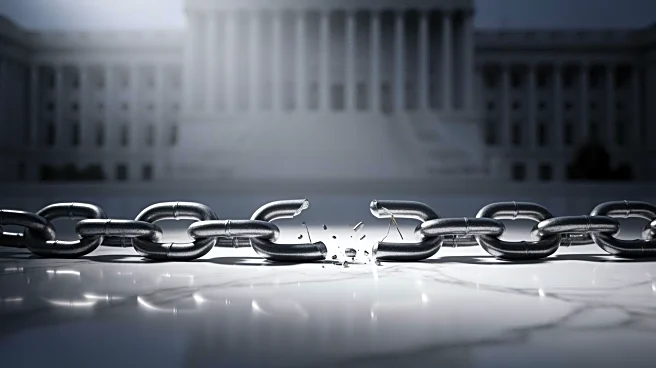What's Happening?
The American Federation of Government Employees (AFGE), the largest union representing federal workers, has publicly called on Congress to pass a 'clean' temporary funding bill to end the ongoing government
shutdown. The union's president, Everett Kelley, emphasized the need for a resolution that would allow federal workers to return to their jobs with full back pay. The shutdown, which began on October 1, has left many federal employees without pay, and the union is urging lawmakers to abandon healthcare demands that have stalled negotiations. Senate Democrats have blocked the proposed short-term spending bill multiple times, demanding concessions on healthcare policy. The union's stance adds pressure on Democrats to reconsider their position, as Republicans need additional Democratic support to pass the legislation.
Why It's Important?
The call from AFGE highlights the significant impact of the government shutdown on federal workers, many of whom are struggling financially due to missed paychecks. The union's position underscores the urgency of resolving the shutdown to prevent further economic hardship for these workers. The shutdown also affects government operations and services, with potential long-term consequences for public policy and political dynamics. The union's pressure on Democrats could shift the political landscape, influencing negotiations and potentially leading to a resolution. The situation reflects broader challenges in U.S. politics, where partisan disagreements can lead to significant disruptions in government functioning.
What's Next?
If Congress fails to pass a resolution, the shutdown could continue, exacerbating financial difficulties for federal workers and impacting government services. The union's call may prompt further negotiations, with potential shifts in political positions as lawmakers seek a compromise. The outcome will depend on whether Democrats and Republicans can reach an agreement that addresses both funding and healthcare concerns. The resolution of the shutdown will be closely watched by stakeholders, including federal employees, political leaders, and the public, as it will have implications for future budget negotiations and government operations.









